'I don't remember how he reacted to the losses. It is natural for a small child to be upset about the losses.'
'After our third game his father remarked to me that he could not win against me in all the three games.'
'I consoled him saying that he should not take the losses seriously as I saw the boy becoming a big player one day.'

What is so special about a 52-year-old man playing against a 9-year-old boy three times at three venues, and defeating him in all the three games? After all, the boy had only begun playing chess just two years earlier.
It is special if that little boy happens to be D Gukesh, the new World Chess Champion.
And the man who is 62 years today is O T Anilkumar, a 7 times Kerala state chess champion and 6 times runner-up.
"What impressed me was the way the boy worked hard. You can describe him as a highly talented, hardworking boy. You need hard work along with talent to reach exceptional heights," O T Anilkumar tells Rediff.com's Shobha Warrier.
In 2015, you played against Gukesh who was 9 years old then. Were you impressed by the way he played?
It happened almost 10 years ago.
The funny thing was, I had forgotten that I had played against Gukesh. I have played against many children, and have won some games and also lost some. I still play with children, even at the age of 62.
It was my friends who dug out the details of those old games while searching for the matches Gukesh had played! (laughs)
That was how my memory was ignited.
I then remembered that I played against him three times that year. The first tournament was in Nagercoil in February 2015. Then in April, we played in Kozhikode and the third tournament was in August in Nagpur.
The tournaments at Nagercoil and Kozhikode were FIDE rated ones, and the one at Nagpur was the National Premier.
I happened to win against him in all the three encounters.
What impressed me was the way the boy worked hard. You can describe him as a highly talented, hardworking boy.
You need hard work along with talent to reach exceptional heights.
If you ask me whether I felt he would be a world champion one day, let me be honest, no, I did not think on those lines then.
But I felt he would have a great future in chess. I told his father too that a great future awaited his little boy, and he need not worry about the losses at all.
It was at the same period that children like Praggyananda, Arjun Erigasi also were making a mark.
Though the boy had started playing only two years ago, he had an Elo Rating of around 1700-1800, I think.
Ten years ago, it was considered very good, unlike today. Today, talented 9, 10 year olds have a rating of 2000-2100.
I have noticed that only 5 to 10 children out of a large chunk of children achieve high Elo rating. Majority of them move around 1400-1500 for a very long time.

You played against Gukesh three times that year and you won all the three games. How did he take the losses, after all he was a small boy? Was he upset?
I don't remember how he reacted to the losses. It is natural for a small child to be upset about the losses.
After our third game that his father remarked to me that he could not win against me in all the three games.
I consoled him saying that he should not take the losses seriously as I saw the boy becoming a big player one day.
It must be my experience, and it must be pure luck that I won all the three games.
Children at that age play what they are taught, and they do that really well.
But if you play differently, they may find it difficult to understand the variations.
Though my games against Gukesh happened by chance, I feel an unexplainable happiness that the little boy has now become the FIDE world champion!
When Anand was young, experts used to describe him as an unusual talent and an extraordinary chess player. Did you feel that way about Gukesh in 2015?
Remember when I played Gukesh, he was only 9.
One thing I know: Gukesh worked really hard to achieve this.
I remember seeing Anand play the junior tournament in 1983 in Delhi. He was placed 5th then, but was first in the Lighting tournament.
The 14-year-old Anand was looked at as an extraordinary talent by everyone.
In those days, there was only sub-junior and junior tournaments, and children aged 5,6,7 or 8 never used to play tournaments. At 14, Anand was the youngest then.
And parents of those days did not see much growth in a game like chess. But Anand's parents were an exception.
Today you see a huge wave of small children, very talented ones playing chess.

Don't you think Viswanathan Anand is responsible for the change in the attitude?
No doubt about that. Certainly, it was because of Anand only we see all these talented young boys and girls playing tournaments today.
Garry Kasparov recently said Vishy's children are all grown up..
Very true. Though Anand's influence is there all over the country, the growth of new talent has been extraordinarily high in Tamil Nadu.
That's because they have their own Viswanathan Anand to look up to.
When you look at the life of all these chess champions, we see that their family has done a lot of sacrifice. Anand's mother travelled with him all the time. So also Pragg's mother. Gukesh's father resigned his job to travel with him...
I will also add that only the children from Tamil Nadu and their parents sacrifice so much for the game.
I have seen Chithambaram's mother waiting outside all the time with food and drinks for her son.
These families are not rich but they sacrifice a lot for their children and these children do very well too by working hard.
That's why Tamil Nadu is the home of chess.
You don't see this kind of dedication from parents in other states.

How important is the role of parents and their sacrifice for the success of a young chess player?
Very, very important. As I am from Kerala, I will give you the example of Kerala. This kind of dedication and sacrifice from parents is what is lacking here.
In most states, the attitude of the parents is, the child has to give first importance to education. If they have time after studies, they can play chess. If the child has exams, no chess.
But you look at players like Pragg or Gukesh or Erigasi, their life is chess. From morning, they start playing chess.
For these children, the first priority is chess; also for their parents. That's why they are world class chess players.
Part-time chess players will remain part-time chess players, and not world class players.
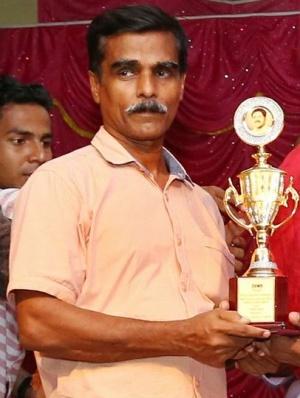
Photograph: Kind courtesy OT Anilkumar
Is not the support from schools also important? Like the way Gukesh's school Velammal encouraged and supported his journey...
I have to emphasise that support from schools is as important as support from parents.
Take for example, the schools in Kerala and many other schools in India do not give attendance to those children who go to play chess tournaments.
They even threaten them if they do not write exams, they will not pass. Their attitude is that attending classes and writing exams are the only important thing in a child's life.
On the other hand, a school like Velammal tells the parents not to send these children to school so that they could pursue chess seriously.
The school promises to take care of their studies. We need schools like that if we need world class chess players.
This happens only in some states in India like Goa, Andhra, Gujarat and Maharashtra. I need not mention Tamil Nadu at all as it is on another level.
Personally, when I spot an unusual talent while working as a playing partner, I make it a point to tell their parents to give all the support to them, mainly making the children play as many tournaments as possible.
As a person who has been playing chess for several decades, what will be your message to parents and children who want to be professional chess players?
I have been telling everywhere that they should try to emulate the hard work put in by Gukesh or Pragg or Erigasi, and the sacrifice of their parents.
Parents should understand that chess cannot be priority number 2. They should also understand that a child who is good at chess will never have any difficulty in studies.
Only when parents realise this, we will have many more Gukeshs, Praggs and Erigasis.
I will tell children: Work hard. Without hard work, you are not going to achieve anything.
I also want to tell children that chess cannot be a part time hobby. Chess has to be full-time and education, part-time!
Feature Presentation: Rajesh Alva/Rediff.com







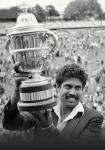
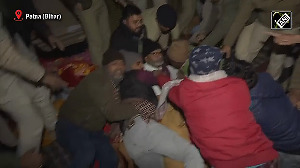
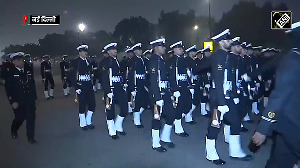
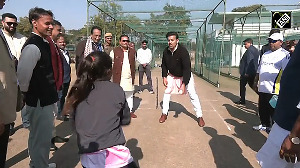

 © 2025 Rediff.com -
© 2025 Rediff.com -